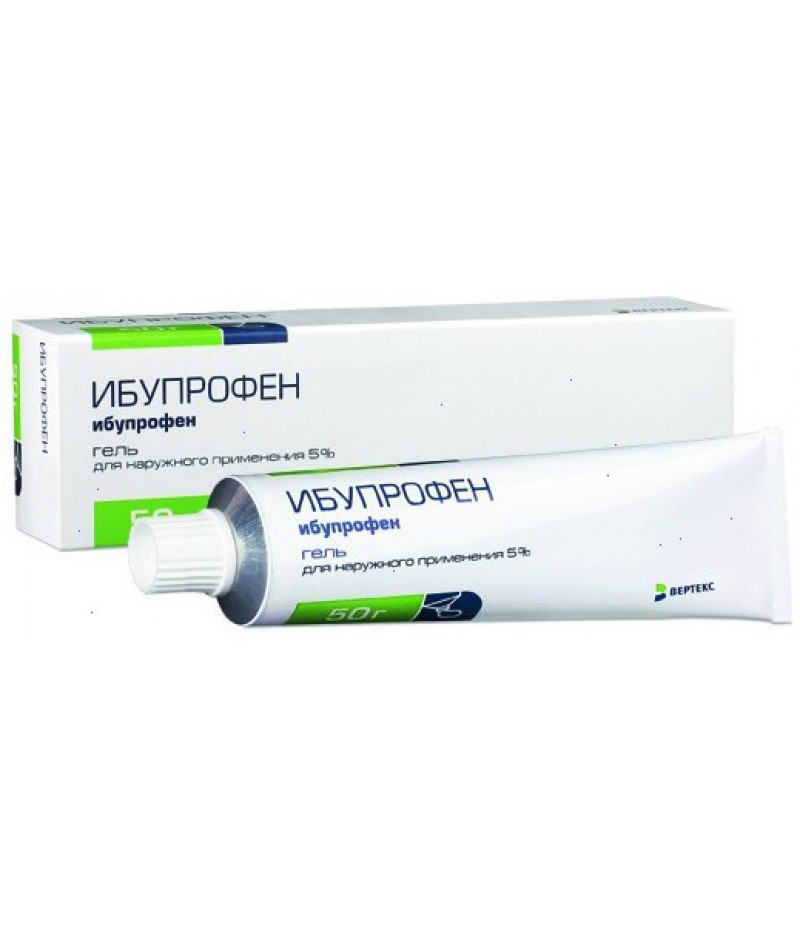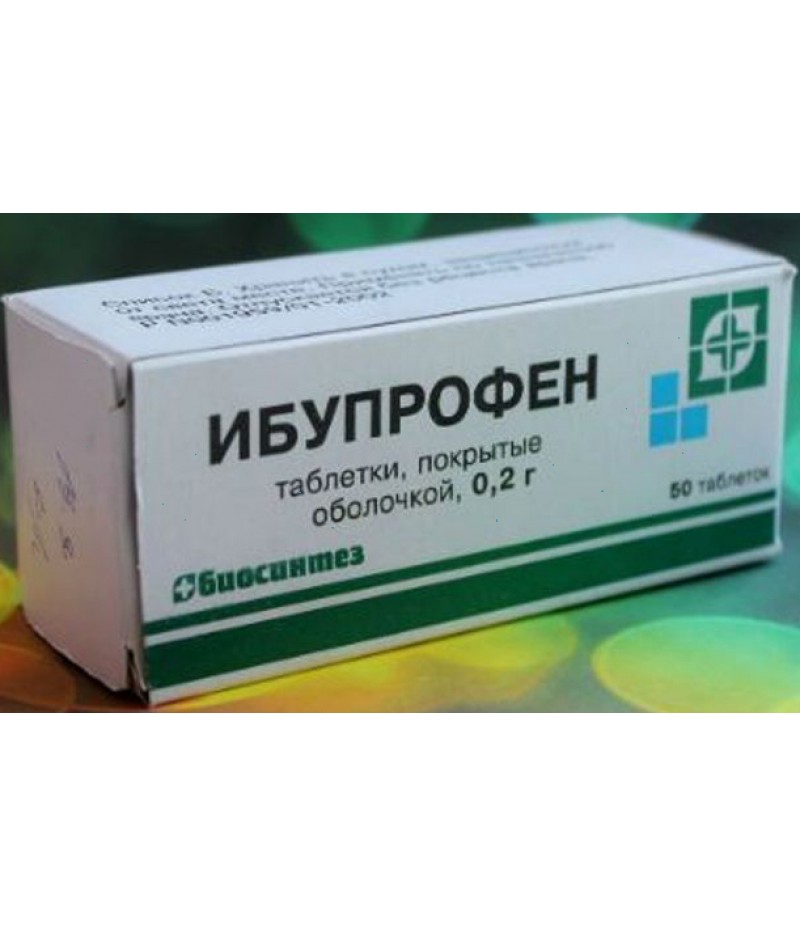Ibuprofen gel 5% 50gr
- $5.13
- 3 or more $4.99
- Availability:In Stock
Notice: Undefined variable: short_description in /home/innuenze/domains/farmacy-houses.com/public_html/catalog/view/theme/tt_angara3/template/product/product.tpl on line 105
Tags: gel
Ibuprofen gel user manual
Reed more and buy Ibuprofen gel on this page
The composition and release form of the drug
Gel for external use 5% colorless or with a light yellow shade, transparent, with a specific smell; opalescence is allowed.
1 g
ibuprofen 50 mg
Excipients: propylene glycol, ethanol, carbomer 940, dimexide, triethanolamine, methyl parahydroxybenzoate, non-rolybic oil, lavender oil, purified water.
pharmachologic effect
NSAID, a derivative of phenylpropionic acid. It has anti-inflammatory, analgesic and antipyretic effects.
The mechanism of action is associated with inhibition of the activity of COX - the main enzyme in the metabolism of arachidonic acid, which is a precursor of prostaglandins, which play a major role in the pathogenesis of inflammation, pain and fever. The analgesic effect is due both to the peripheral (indirectly, through suppression of prostaglandin synthesis) and to the central mechanism (due to inhibition of the synthesis of prostaglandins in the central and peripheral nervous system). Suppresses platelet aggregation.
When applied externally, it has anti-inflammatory and analgesic effects. Reduces morning stiffness, increases the range of motion in the joints.
Pharmacokinetics
When ingestion Ibuprofen gel is almost completely absorbed from the gastrointestinal tract. Simultaneous food intake slows down the rate of absorption. Metabolized in the liver (90%). T1 / 2 is 2-3 hours.
80% of the dose is excreted in the urine mainly in the form of metabolites (70%), 10% - unchanged; 20% is excreted through the intestines as metabolites.
Indications
Inflammatory-degenerative diseases of the joints and spine (including rheumatic and rheumatoid arthritis, ankylosing spondylitis, osteoarthrosis), articular syndrome with exacerbation of gout, psoriatic arthritis, ankylosing spondylitis, tendinitis, bursitis, radiculitis, traumatic inflammatory inflammation, traumatic inflammatory arthritis, ankylosing spondylitis, tendinitis, bursitis, radiculitis apparatus. Neuralgia, myalgia, pain in infectious and inflammatory diseases of the upper respiratory tract, adnexitis, algomenorrhea, headache and toothache. Fever in infectious and inflammatory diseases.
Contraindications for Ibuprofen gel
Erosive and ulcerative lesions of the gastrointestinal tract in the acute phase, diseases of the optic nerve, "aspirin triad", hematopoietic disorders, pronounced disorders of the kidneys and / or liver; hypersensitivity to ibuprofen.
Dosage
Set individually, depending on the nosological form of the disease, the severity of clinical manifestations. When taken orally or rectally for adults, a single dose is 200-800 mg, the frequency of admission - 3-4 times / day; for children - 20-40 mg / kg / day in several doses.
Outwardly used within 2-3 weeks.
The maximum daily intake for adults when administered orally or rectally is 2.4 g.
Side effects of Ibuprofen gel
On the part of the digestive system: often - nausea, anorexia, vomiting, epigastric discomfort, diarrhea; development of erosive and ulcerative lesions of the gastrointestinal tract is possible; rarely, bleeding from the gastrointestinal tract; with long-term use may be abnormal liver function.
On the part of the central nervous system and peripheral nervous system: often - headache, dizziness, sleep disorders, agitation, visual disturbances.
On the part of the hematopoietic system: with prolonged use, anemia, thrombocytopenia, agranulocytosis are possible.
On the part of the urinary system: long-term use may be impaired renal function.
Allergic reactions: often - skin rash, angioedema; rarely - aseptic meningitis (more often in patients with autoimmune diseases), bronchospastic syndrome.
Local reactions: when applied externally, skin hyperemia, burning sensation or tingling are possible.
Drug interaction
With simultaneous use of Ibuprofen gel reduces the effect of antihypertensive agents (ACE inhibitors, beta-blockers), diuretics (furosemide, hydrochlorothiazide).
With simultaneous use with anticoagulants may enhance their action.
With simultaneous use with SCS increases the risk of side effects from the gastrointestinal tract.
With the simultaneous use of Ibuprofen gel can displace from compounds with plasma proteins indirect anticoagulants (acenocoumarol), hydantoin derivatives (phenytoin), oral hypoglycemic drugs sulfonylurea derivatives.
With simultaneous use with amlodipine, a slight decrease in the antihypertensive effect of amlodipine is possible; with acetylsalicylic acid - decreases the concentration of ibuprofen in the blood plasma; with baclofen - described a case of increased toxic action of baclofen.
With simultaneous use with warfarin, an increase in bleeding time is possible, microhematuria, hematomas were also observed; with captopril - reduction of the antihypertensive effect of captopril is possible; with Kolestiramine - a moderately pronounced decrease in the absorption of ibuprofen.
With simultaneous use of lithium carbonate increases the concentration of lithium in the blood plasma.
With simultaneous use of magnesium hydroxide increases the initial absorption of Ibuprofen gel; with methotrexate - increases the toxicity of methotrexate.
special instructions for Ibuprofen gel
It is used with caution in concomitant diseases of the liver and kidneys, chronic heart failure, with dyspeptic symptoms before treatment, immediately after surgical interventions, with indications of a history of bleeding from the gastrointestinal tract and gastrointestinal tract diseases, allergic reactions associated with NSAIDs.
In the process of treatment requires systematic monitoring of the functions of the liver and kidneys, pictures of peripheral blood.
It should not be used externally on damaged skin.
Pregnancy and lactation
Do not use Ibuprofen gel in the third trimester of pregnancy. Use in the I and II trimesters of pregnancy is justified only in cases where the expected benefit to the mother exceeds the possible harm to the fetus.
Ibuprofen gel is excreted in small amounts with breast milk. Use during lactation with pain and fever is possible. If necessary, long-term use or use in high doses (more than 800 mg / day) should decide on the termination of breastfeeding.
In case of impaired renal function
Contraindicated in severe renal impairment. It is used with caution in concomitant kidney diseases.
With abnormal liver function
Contraindicated in marked disorders of the liver. Be wary when using concomitant liver diseases.
Terms of sell
You don't need a prescription to buy Ibuprofen gel.


